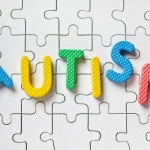How to recognize, manage autism spectrum disorders, Asperger’s syndrome
Charlotte experts will discuss autism spectrum disorders March 10
Girls with Asperger’s syndrome may appear quieter, more introspective than boys
Psychologists, therapists can help walk through situations, prepare for social encounters
Five professionals from Southeast Psych will share myths and facts about autism on March 10 at a Community Health Classroom sponsored by the Mecklenburg Medical Alliance and Endowment. The program is open to the public, for $30 per person.
Among the speakers will be Kelley Bolton, a psychologist who specializes in helping school-age and adolescent girls with Asperger’s syndrome, a form of autism.
Autism is a neurodevelopmental disorder that can affect a child’s social interactions, emotions and ability to communicate clearly. Symptoms can range from mild to severe
Children with Asperger’s can be higher-functioning than those with other forms of autism, and they’re more likely to be males than females. The differences in behavior between girls and boys can make Asperger’s harder to pinpoint in girls, Bolton said.
“The thought is that we’re missing girls,” Bolton said. “They’re flying under the radar.”
Some Asperger’s-associated behavior in girls can go unrecognized because it’s confused with societal expectations.
It’s not unusual for girls to be quiet and reserved, Bolton said. They can keep to themselves and be thought of as just shy. “Whatever challenges are there may go unnoticed for a while,” she said, until they reach adolescence, when “we really start to see some of the difficulty in terms of their connectedness to peers.”
By middle school, girls typically become more interested in pop culture, fashion and social media, and they begin to turn toward peers for social support, Bolton said. “Girls with Asperger’s tend to be a little more socially immature. Their interests tend to stay a little bit younger. These girls are still enjoying imaginative play and don’t necessarily care as much about following trends.”
For boys with Asperger’s, behaviors that can be problematic are more obvious. Boys may be louder, quicker to show frustration and pick arguments. “Girls tend to internalize what they’re experiencing,” Bolton said. “They’re more likely to kind of hold it in.”
Bolton said she tries to help girls with Asperger’s by teaching them skills related to taking the perspective of others and preparing for what to expect in various social situations. Going over that can help them become more comfortable and confident about the experiences they face, she said.
“I might say, “Think to yourself, where am I going? To a party, to school, to Carowinds, to church? What types of people would I expect to see there? Am I going to know anyone? What do people do there? If it’s a party, there might be music. … and people playing games. If it’s church, it will be quieter, sitting orderly in pews.’ We have to kind of break things down.”
Most people take for granted all the decisions and observations required during these social interactions. But people with Asperger’s “aren’t always tuned into the world around them,” Bolton said. “They do not as intuitively develop their social understanding.”
Karen Garloch: 704-358-5078, kgarloch@charlotteobserver.com, @kgarloch
COMMUNITY HEALTH CLASSROOM
Topic: Autism Spectrum Disorders
Speakers: Five experts from Southeast Psych – psychologists Frank Gaskill and Kelley Bolton, clinical social worker Mary B. Moore, marriage and family therapist Josh Jensen and educational advocate Darci Carter.
Details: 9:30-11:30 a.m., March 10, Myers Park Country Club, 2415 Roswell Ave. Cost is $30, including brunch. Sponsored by Mecklenburg Medical Alliance and Endowment.
RSVP: By March 4, www.mmaeonline.com, click on Events, scroll to March and click on Community Health Classroom.







